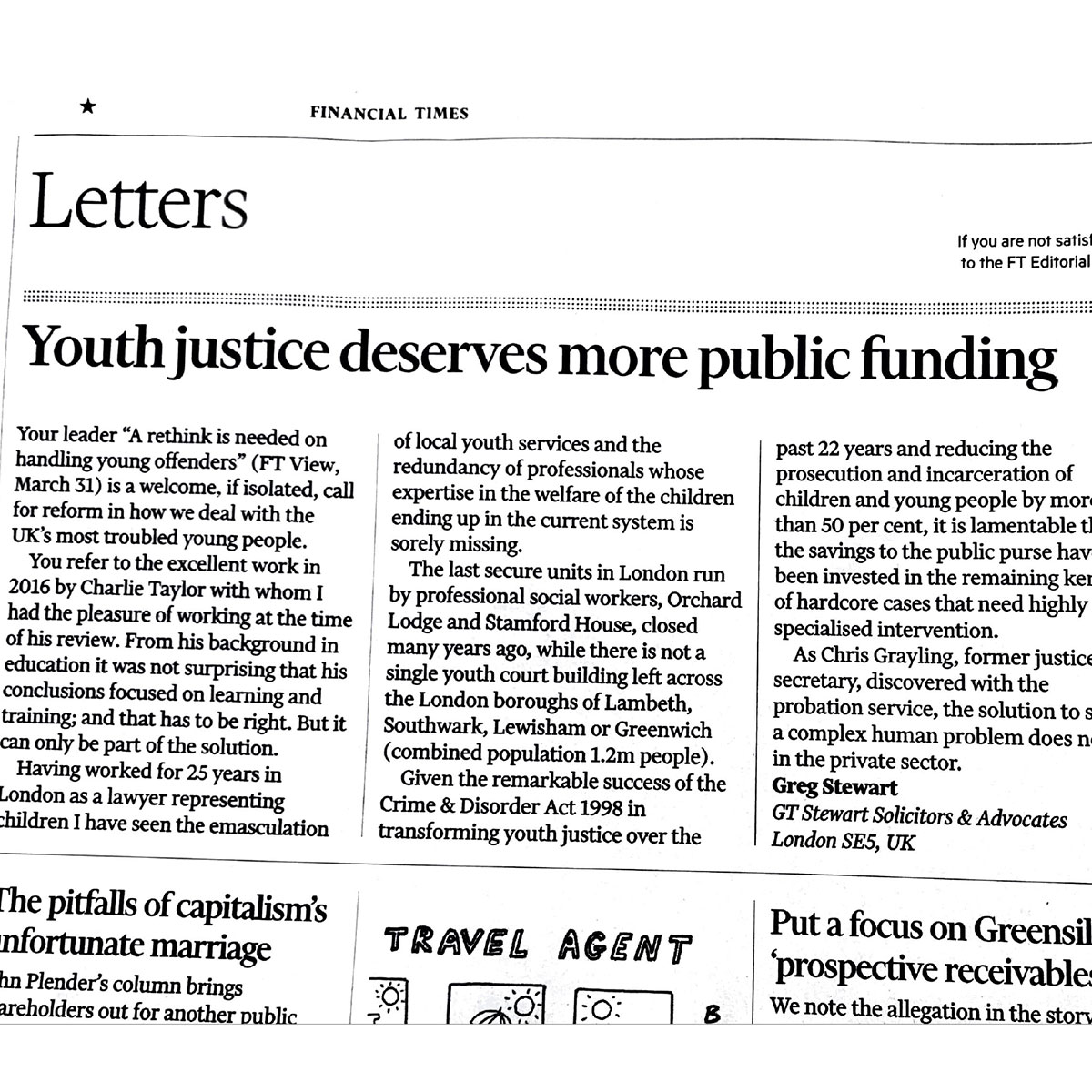
Your leader "A rethink is needed on handling young offenders" (FT View, March 31) is a welcome, if isolated, call for reform in how we deal with the UK's most troubled young people.
You refer to the excellent work in 2016 by Charlie Taylor with whom I had the pleasure of working at the time of his review. From his background in education it was not surprising that his conclusions focused on learning and training; and that has to be right. But it can only be part of the solution.
Having worked for 25 years in London as a lawyer representing children I have seen the emasculation of local youth services and the redundancy of professionals whose expertise in the welfare of the children ending up in the current system is sorely missing.
The last secure units in London run by professional social workers, Orchard Lodge and Stamford House, closed many years ago, while there is not a single youth court building left across the London boroughs of Lambeth, Southwark, Lewisham or Greenwich (combined population 1.2m people).
Given the remarkable success of the Crime & Disorder Act 1998 in transforming youth justice over the past 22 years and reducing the prosecution and incarceration of children and young people by more than 50 per cent, it is lamentable that the savings to the public purse have not been invested in the remaining kernel of hardcore cases that need highly specialised intervention.
As Chris Grayling, former justice secretary, discovered with the probation service, the solution to such a complex human problem does not lie in the private sector.
Greg Stewart
GT Stewart Solicitors & Advocates
London SE5, UK